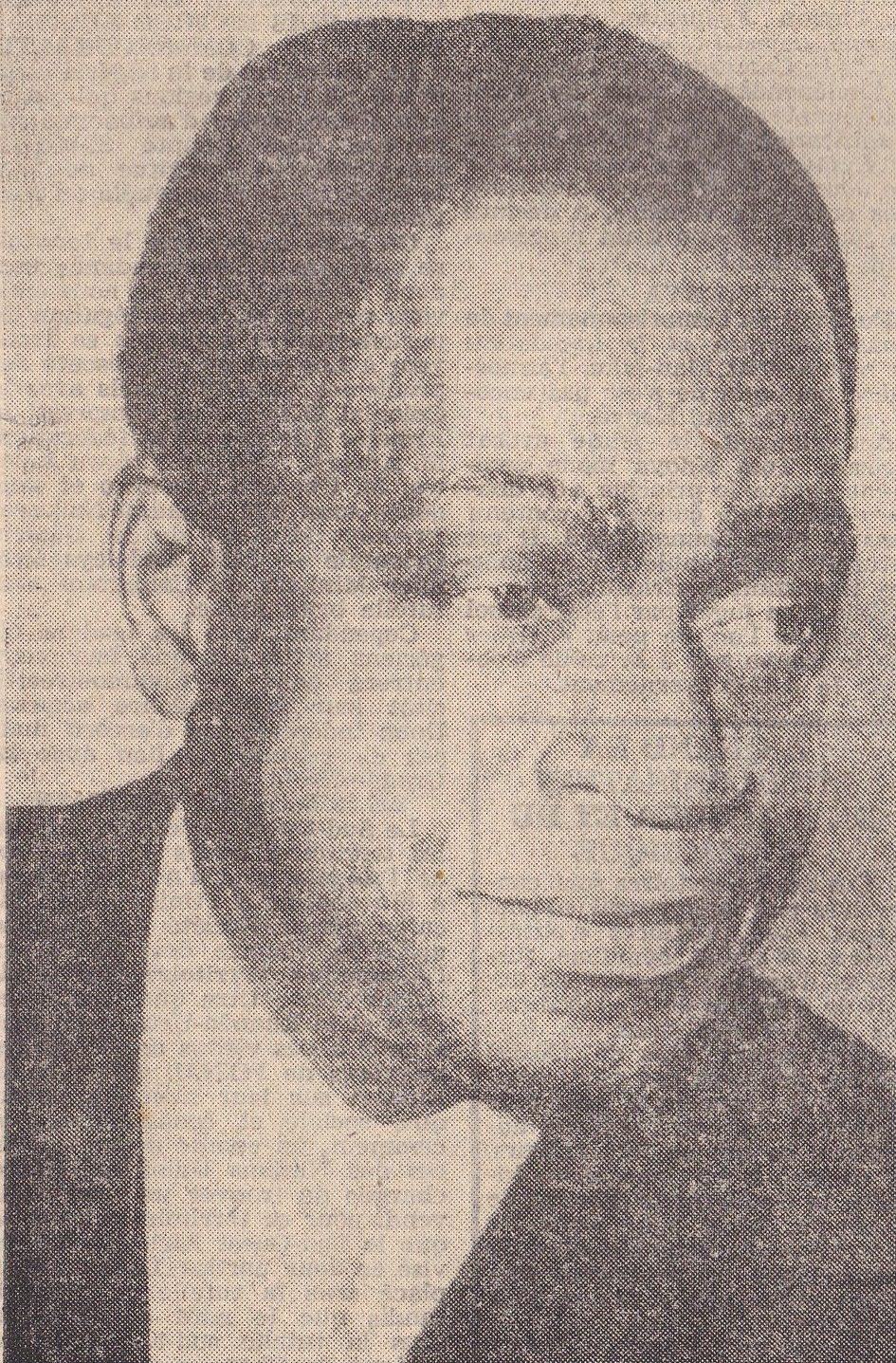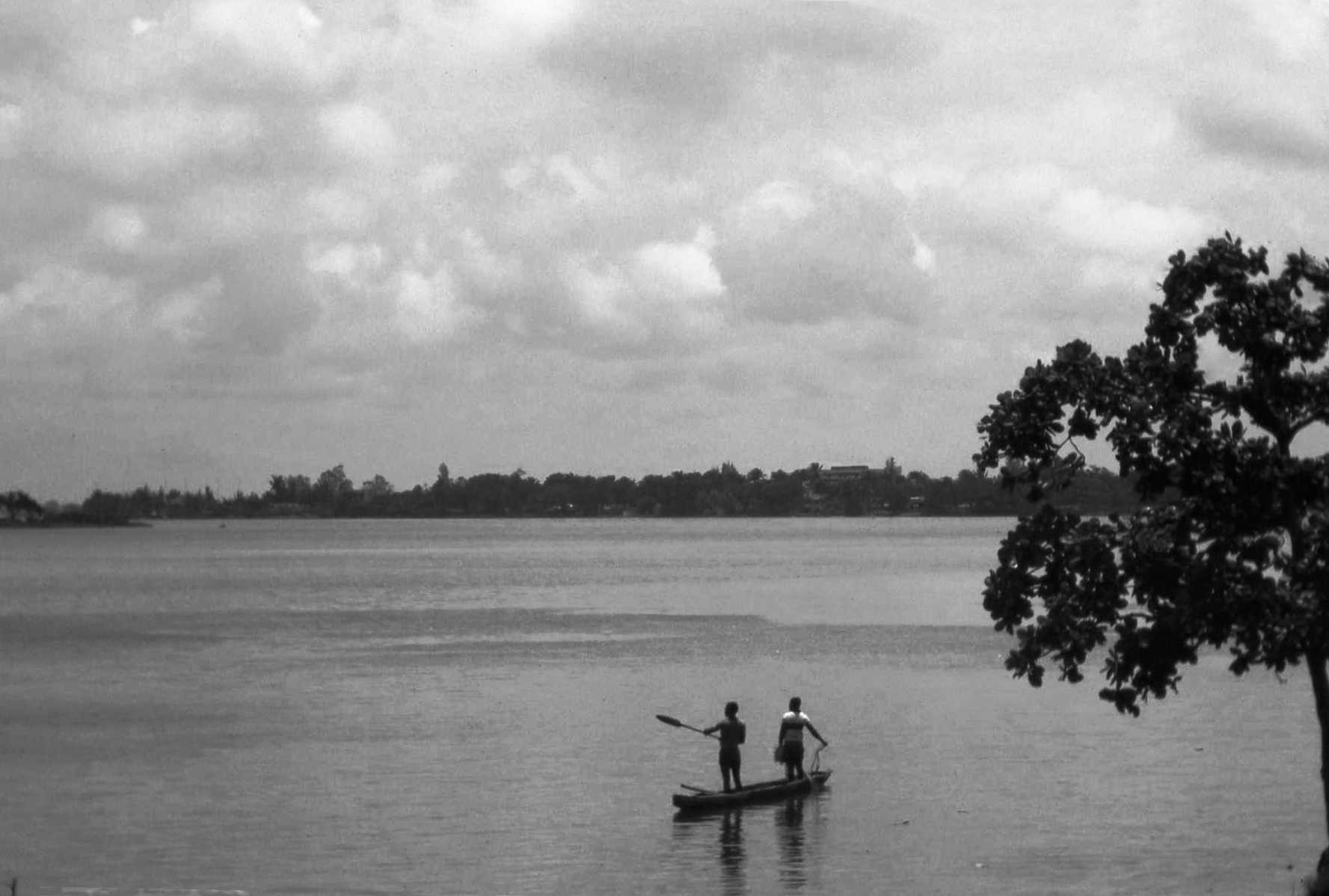|
Institut National Polytechnique Félix Houphouët-Boigny
The Institut National Polytechnique Félix Houphouët-Boigny (INP-HB) is a public institute of higher education, research and production in Yamoussoukro in Côte d'Ivoire. It is named after Félix Houphouët-Boigny, the country's first president. Components The institute consists of these (schools for higher learning / advanced training): * (ESA, ‘School for Advanced Training in Agronomy’). * (ESI, ‘Industry’): for computer science, mechanics and chemistry. * (ESCAE, ‘Business Studies and Management’): also for marketing and insurance. * (ESM, ‘Mining and Geology’): also for petroleum extraction/processing, and water treatment. * (ESTP, ‘Public Works’): for civil engineering. In addition, there are the: * (EFCPC, ‘Continuing Education and Management Development School’), and * (EDP), a doctoral school These are among the country's . In addition, there are . There are also discipline-based departments that are connected to the schools. Hist ... [...More Info...] [...Related Items...] OR: [Wikipedia] [Google] [Baidu] |
Yamoussoukro
Yamoussoukro (; , locally ) is the ''de jure'' capital of Ivory Coast and an autonomous district. As of the 2014 census, Yamoussoukro is the fifth most populous city in Ivory Coast with a population of 212,670. Located north-west of Abidjan, the district of Yamoussoukro covers among rolling hills and plains. Yamoussoukro became the legal capital of the Ivory Coast in 1983, although the former capital Abidjan retains several political functions. Prior to 2011, what is now the district of Yamoussoukro was part of Lacs Region. The district was created in 2011 and is split into the departments of Attiégouakro and Yamoussoukro. In total, the district contains 169 settlements. Yamoussoukro is a sub-prefecture in Yamoussoukro Department and is also a commune: since 2012, the city of Yamoussoukro has been the sole commune in the autonomous district of Yamoussoukro. History Prehistory Stone tools found in the country from hundreds of thousands of years ago show that the area ar ... [...More Info...] [...Related Items...] OR: [Wikipedia] [Google] [Baidu] |
Côte D'Ivoire
Ivory Coast, also known as Côte d'Ivoire, officially the Republic of Côte d'Ivoire, is a country on the southern coast of West Africa. Its capital is Yamoussoukro, in the centre of the country, while its largest city and economic centre is the port city of Abidjan. It borders Guinea to the northwest, Liberia to the west, Mali to the northwest, Burkina Faso to the northeast, Ghana to the east, and the Gulf of Guinea (Atlantic Ocean) to the south. Its official language is French, and indigenous languages are also widely used, including Bété, Baoulé, Dioula, Dan, Anyin, and Cebaara Senufo. In total, there are around 78 different languages spoken in Ivory Coast. The country has a religiously diverse population, including numerous followers of Christianity, Islam, and indigenous faiths. Before its colonization by Europeans, Ivory Coast was home to several states, including Gyaaman, the Kong Empire, and Baoulé. The area became a protectorate of France in 1843 and ... [...More Info...] [...Related Items...] OR: [Wikipedia] [Google] [Baidu] |
Félix Houphouët-Boigny
Félix Houphouët-Boigny (; 18 October 1905 – 7 December 1993), affectionately called Papa Houphouët or Le Vieux ("The Old One"), was the first president of Ivory Coast, serving from 1960 until his death in 1993. A tribal chief, he worked as a medical aide, union leader and planter before being elected to the French Parliament. He served in several ministerial positions within the French government before leading Côte d'Ivoire following independence in 1960. Throughout his life, he played a significant role in politics and the decolonization of Africa. Under Houphouët-Boigny's politically moderate leadership, Ivory Coast prospered economically. This success, uncommon in poverty-ridden West Africa, became known as the "Ivorian miracle"; it was due to a combination of sound planning, the maintenance of strong ties with the West (particularly France) and development of the country's significant coffee and cocoa industries. However, reliance on the agricultural sector ca ... [...More Info...] [...Related Items...] OR: [Wikipedia] [Google] [Baidu] |
Agronomy
Agronomy is the science and technology of producing and using plants by agriculture for food, fuel, fiber, chemicals, recreation, or land conservation. Agronomy has come to include research of plant genetics, plant physiology, meteorology, and soil science. It is the application of a combination of sciences such as biology, chemistry, economics, ecology, earth science, and genetics. Professionals of agronomy are termed agronomists. Plant breeding This topic of agronomy involves selective breeding of plants to produce the best crops for various conditions. Plant breeding has increased crop yields and has improved the nutritional value of numerous crops, including corn, soybeans, and wheat. It has also resulted in the development of new types of plants. For example, a hybrid grain named triticale was produced by crossbreeding rye and wheat. Triticale contains more usable protein than does either rye or wheat. Agronomy has also been instrumental for fruit and vegetable producti ... [...More Info...] [...Related Items...] OR: [Wikipedia] [Google] [Baidu] |
Civil Engineering
Civil engineering is a professional engineering discipline that deals with the design, construction, and maintenance of the physical and naturally built environment, including public works such as roads, bridges, canals, dams, airports, sewage systems, pipelines, structural components of buildings, and railways. Civil engineering is traditionally broken into a number of sub-disciplines. It is considered the second-oldest engineering discipline after military engineering, and it is defined to distinguish non-military engineering from military engineering. Civil engineering can take place in the public sector from municipal public works departments through to federal government agencies, and in the private sector from locally based firms to global Fortune 500 companies. History Civil engineering as a discipline Civil engineering is the application of physical and scientific principles for solving the problems of society, and its history is intricately linked to advances in t ... [...More Info...] [...Related Items...] OR: [Wikipedia] [Google] [Baidu] |
Doctoral School
In France, a doctoral school () is an educational structure similar in focus to a graduate school but restricted to PhD level. The concept was created in 2000. Doctoral schools have the responsibility of providing students with structured doctoral training in a disciplinary field. Each university will have different doctoral schools, relative to their main fields of research. A doctoral school can be shared between two or more universities. Some universities have also regrouped their Doctoral schools into a Doctoral college. Admission to a doctoral program requires a master's degree, both research-oriented and disciplinary focused. High marks are required (typically a " honour", similar to a cum laude Latin honors are a system of Latin phrases used in some colleges and universities to indicate the level of distinction with which an academic degree has been earned. The system is primarily used in the United States. It is also used in some Sou ...), but the acceptance is linked ... [...More Info...] [...Related Items...] OR: [Wikipedia] [Google] [Baidu] |
Grandes écoles
Grandes may refer to: * Agustín Muñoz Grandes, Spanish general and politician *Banksia ser. Grandes, a series of plant species native to Australia * Grandes y San Martín, a municipality located in the province of Ávila, Castile and León, Spain *Grandes (islands) Grandes ( el, Γκράντες) is a group of three small islands off the east coast of Crete. Administratively it comes within the Itanos municipality in Lasithi. Grandes can be seen from the Minoan site of Roussolakkos near Palekastro as ca ..., a group of three small islands in the Aegean Sea off the east coast of Crete * ''Grandes'' (album), by Maná {{disambig, geo, surname ... [...More Info...] [...Related Items...] OR: [Wikipedia] [Google] [Baidu] |
Classes Préparatoires Aux Grandes écoles
Class or The Class may refer to: Common uses not otherwise categorized * Class (biology), a taxonomic rank * Class (knowledge representation), a collection of individuals or objects * Class (philosophy), an analytical concept used differently from such group phenomena as "types" or "kinds" * Class (set theory), a collection of sets that can be unambiguously defined by a property that all its members share * Hazard class, a dangerous goods classification * Social class, the hierarchical arrangement of individuals in society, usually defined by wealth and occupation * Working class, can be defined by rank, income or collar Arts, entertainment, and media * "The Class" (song), 1959 Chubby Checker song *Character class in role-playing games and other genres *Class 95 (radio station), a Singaporean radio channel Films * ''Class'' (film), 1983 American film * ''The Class'' (2007 film), 2007 Estonian film * ''The Class'' (2008 film), 2008 film (''Entre les murs'') Television * ''Class ... [...More Info...] [...Related Items...] OR: [Wikipedia] [Google] [Baidu] |
Bouaké
Bouaké (or Bwake, N’ko: ߓߐ߰ߞߍ߫ ''Bɔ̀ɔkɛ́'') is the second-largest city in Ivory Coast, with a population of 740,000 (2021 census). It is the seat of three levels of subdivision—Vallée du Bandama District, Gbêkê Region, and Bouaké Department. The city is located in the central part of Ivory Coast about northeast of Lake Kossou, the country's largest lake. It is approximately north of Abidjan on the Abidjan-Niger Railway and about northeast of Yamoussoukro, the capital of the country. Name For the name of the city Bouaké, there are two possible origins: * The corruption of the chief name Kwa Gbéké that made the foundations of the city of Bouaké. * The name Bouaké coming from two Baoulé words: "Boua" which means sheep and "Ké" which means dry. Thus meaning the place in which sheep are dried as they would have seen Jola drying sheep skins when they arrived in Bouaké. Demographics History In the 1800s a group related to the Akan, the Assabou ... [...More Info...] [...Related Items...] OR: [Wikipedia] [Google] [Baidu] |
Satellite Facility
A satellite campus or branch campus or regional campus is a campus of a university or college that is physically at a distance from the original university or college area. This branch campus may be located in a different city, state, or country, and is often smaller than the main campus of an institution. The separate campuses may or may not be under the same accreditation and share resources or they share administrations but maintain separate budgets, resources, and other governing bodies. In many cases, satellite campuses are intended to serve students who cannot travel far from home for college because of family responsibilities, their jobs, financial limitations, or other factors. The availability of branch campuses may increase higher education enrollment by nontraditional students.James W. Fonseca and Charles P. BirdUnder the Radar: Branch Campuses Take Off ''University Business'' magazine, October 2007 Electronic communications technology has helped to facilitate the ope ... [...More Info...] [...Related Items...] OR: [Wikipedia] [Google] [Baidu] |
Abidjan
Abidjan ( , ; N'Ko script, N’ko: ߊߓߌߖߊ߲߬) is the economic capital of the Ivory Coast. As of the Demographics of Ivory Coast, 2021 census, Abidjan's population was 6.3 million, which is 21.5 percent of overall population of the country, making it the sixth most populous city proper in Africa, after Lagos, Cairo, Kinshasa, Dar es Salaam, and Johannesburg. A cultural crossroads of West Africa, Abidjan is characterised by a high level of industrialisation and urbanisation. It also is one of the most populous French-speaking cities in Africa. The city expanded quickly after the construction of a new wharf in 1931, followed by its designation as the capital city of the then-French colony in 1933. The completion of the Vridi Canal in 1951 enabled Abidjan to become an important sea port. Abidjan remained the capital of the Ivory Coast after its independence from France in 1960. In 1983, the city of Yamoussoukro was designated as the official political capital of Ivory Coast. Ho ... [...More Info...] [...Related Items...] OR: [Wikipedia] [Google] [Baidu] |


